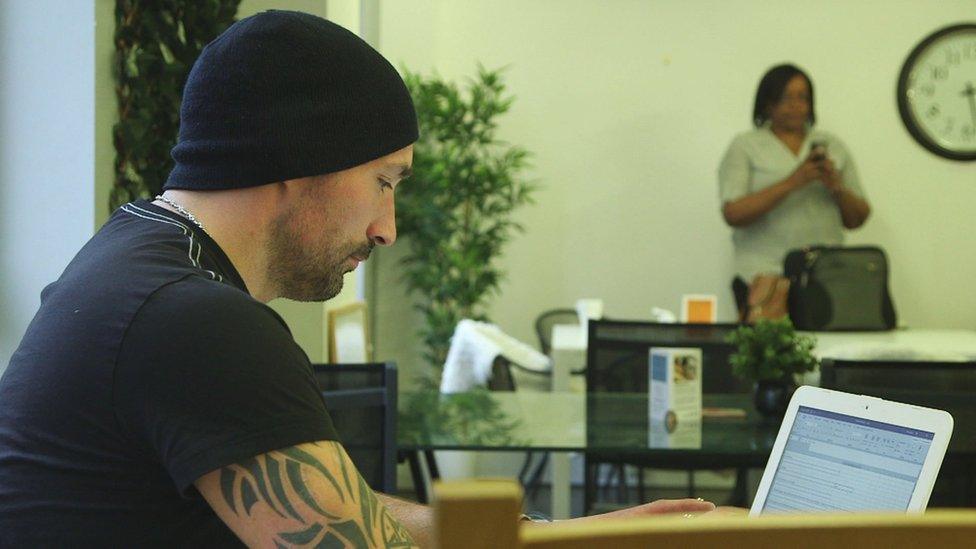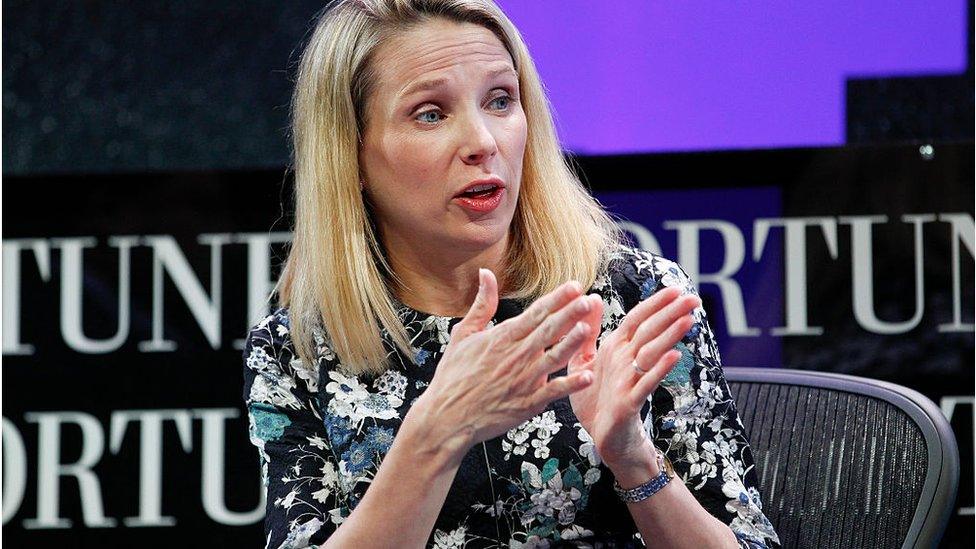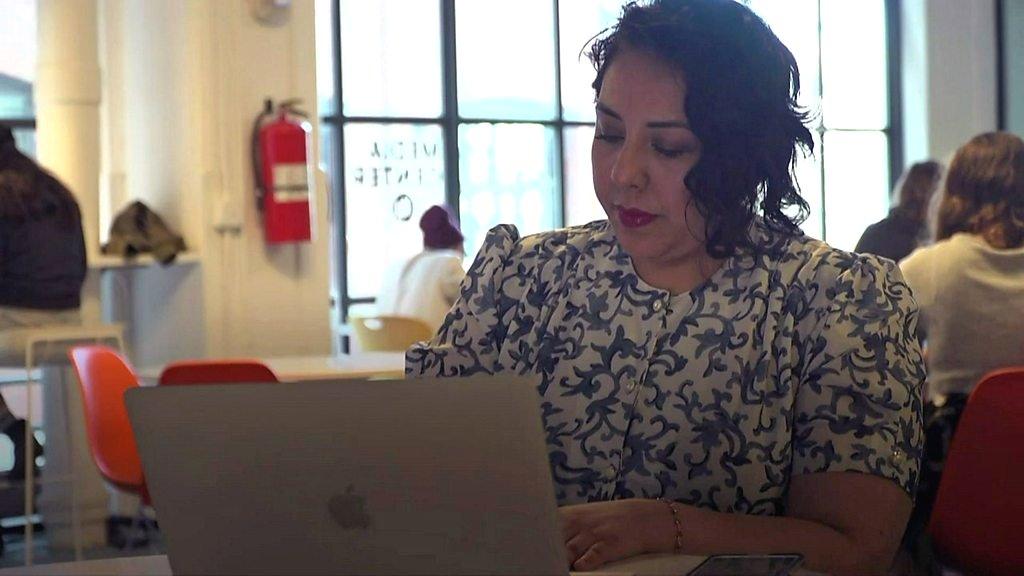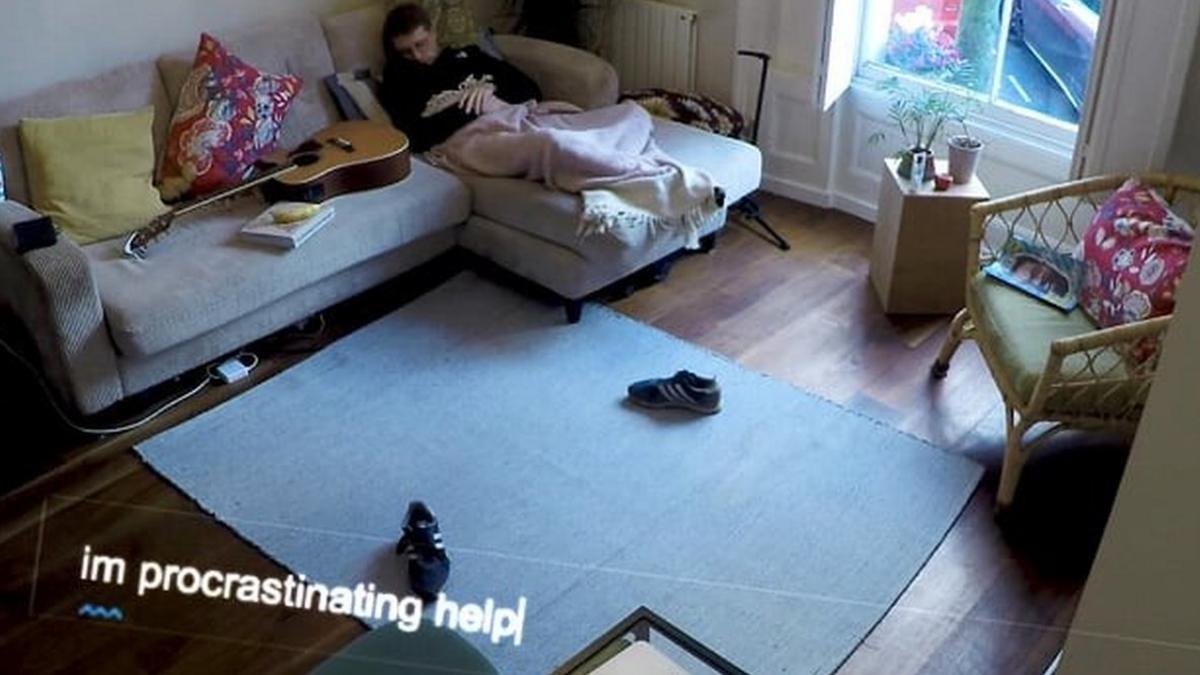'I turn off the doorbell when I work from home'
- Published
Home workers discuss the problems and benefits
Michelle Pratt has an inventive way of keeping herself focused while she is working from home.
She removes the batteries from her doorbell so she doesn't get distracted by deliveries or visitors.
Michelle is one of a growing number of workers who are based in their own home for much of the working day.
BBC 5 Live Wake Up To Money analysis reveals a 74% jump in the number of people working from their own home between 2008 and 2018.
More than 1.54 million people work from home for their main job - up from 884,000 ten years ago, according to the ONS Labour Force Survey, the largest study of employment circumstances in the UK.
Michelle, who works as a management development trainer and coach, enjoys the freedom and flexibility that remote working offers.
Flexibility and freedom
"You can be in for deliveries, choose when to exercise and I get to cook healthy lunches; it's good for my overall wellbeing and a work-life balance."
A recent survey of remote workers from the Association of Independent Professionals and the Self-employed (IPSE) found that over half (55%) of them said increased flexibility was the greatest advantage of remote working.

Saloma Kelly runs an events company from home
Saloma Kelly agrees. She runs an events company remotely. "You are getting out and meeting new people, you can go wherever you want and work remotely.
"It doesn't matter if you are in a pub or an office space, there's more freedom to just go where you need to be."
Finding community
As well as workers based solely in their own home, the BBC found there has been a smaller increase in the number of people who work in different places but with their home as a base. That number has increased by around 200,000 in the 10 years between 2008 and 2018 to 2.66 million.

Mark Black is one of many remote workers who use co-working spaces
Many of those remote workers choose to spend their working day in co-working spaces such as Manchester's Ziferblat café. Every Friday afternoon, a group of homeworkers and freelancers meet there to work alongside each other.
Michelle Pratt is among them: "I often go to spaces like this, just for interaction, it helps my productivity and motivation if I can be around other people".
'Isolated and lonely'
With more people working from home, the mental health charity Mind has raised concerns about the possible loneliness and isolation that may affect remote workers.
Emma Mamo, head of workplace wellbeing at Mind, said: "Home workers don't always have the same opportunities to connect with people as their office-based colleagues.

Some remote workers may feel isolated
"This could result in some home workers feeling isolated and lonely."
Mark Black, a marketing consultant, can also be found in Ziferblat, as he struggled to switch off from work when he was based solely at home.
"I hated home working, you get up in the morning and stare at the same four walls, do your work, and try and clock off, but you can't.
"You find yourself working until 10 or 11 at night."
Some employers worry that the increasing prevalence of remote working may lead to a lack of collaboration and feeling disconnected from their team.

Marissa Mayer, former boss of Yahoo
Marissa Mayer, as chief executive of Yahoo in 2013, famously banned working from home to encourage greater cohesion in her workforce.
In a leaked private memo she stated: "To become the absolute best place to work, communication and collaboration will be important, so we need to be working side by side. That is why it is critical that we are all present in our offices."
More productive?
But IPSE found a third of home workers felt more productive at home than in an office, in a survey in April.
Adina Tarry, a business psychologist, agrees. She told the BBC that home-working doesn't suit every personality.
"People who are very extroverted and need that stimulation will find it hard to be by themselves. I think it's a good idea to create a home office if you're working from home to give yourself direction and stick to a plan."
Some employers say that good communication is key to keeping remote workers feeling connected to their colleagues.
Bobbie Hough manages the communications firm Hough Bellis in Cheshire. He has several employees who are based remotely and regularly travels to meet up with them.
"If I have to drive 30 to 50 miles to have a coffee with one of my remotely-based employees, it's worth it to ensure that my staff are well."
- Published13 June 2018

- Published30 April 2019

- Published27 December 2018
